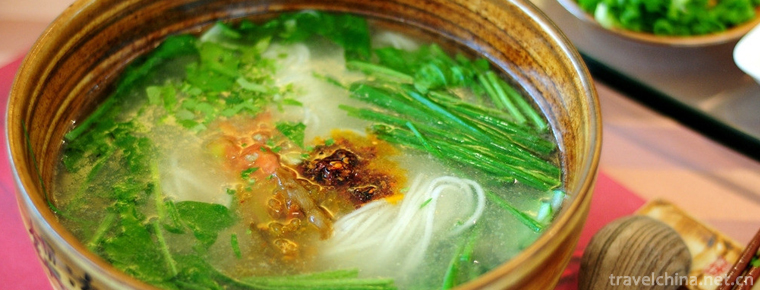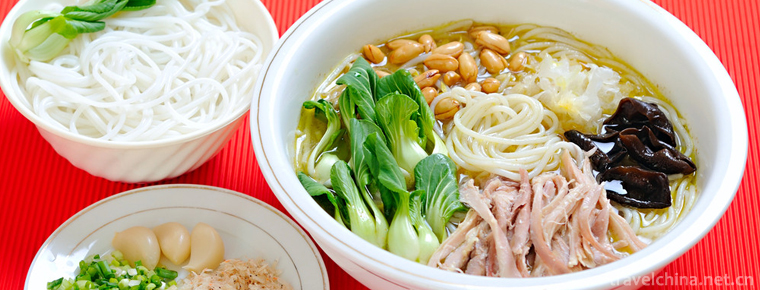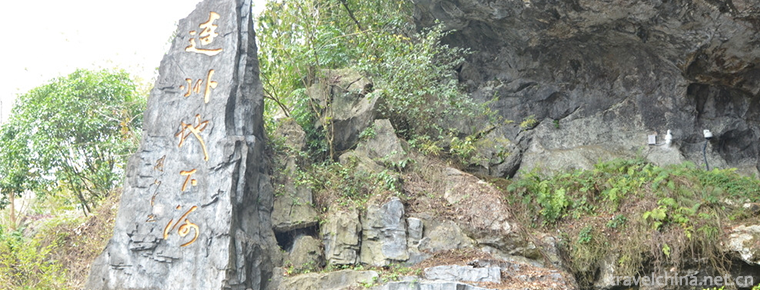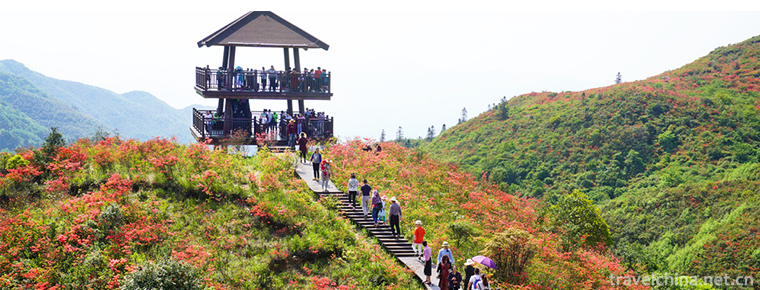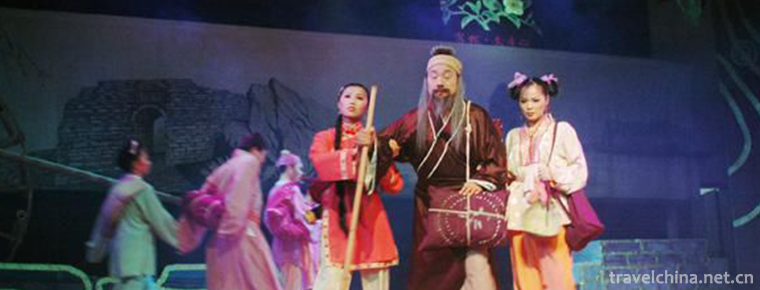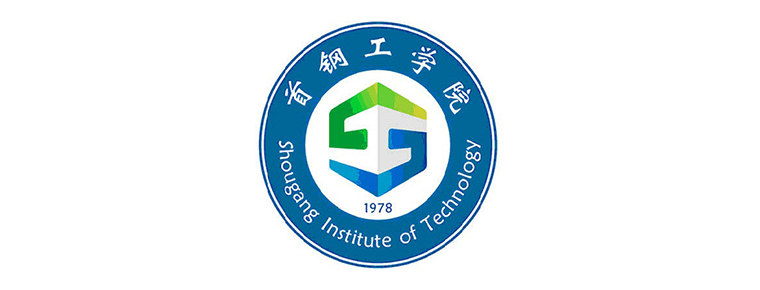Beijing University Of Agriculture
Beijing University Of Agriculture
The predecessor of Beijing University of Agriculture, Tongxian agricultural school, Hebei, was founded in 1956. In 1958, Tongxian agricultural school in Hebei province was merged with Beijing agricultural cooperative cadre school and renamed Beijing agricultural school. In 1965, based on the agricultural school in Beijing, Beijing established a semi agricultural and semi read Beijing agricultural labor University. In 1978, it was renamed Beijing University of Agriculture by the State Council. The school now covers an area of about 1000 mu, including the school base, the east campus, the north campus and the University Science Park market. In addition, there are 1000 acres of University Science Park Farm and ten thousand mu University Science Park forest farm. The school has been awarded the title of Beijing garden style unit, Beijing civilized campus, capital civilization unit pacesetter and national civilized unit.
The school has 11 two level colleges and 3 teaching departments. It has 11 authorization points for first class master's degree and 7 major master's degree authorization points. There are 31 undergraduate specialties, including 3 specialties in horticulture, animal medicine, agriculture and forestry economic management. The school has 2 state-level (plant and animal) and 4 Beijing municipal experimental teaching demonstration centers (plant, animal, food processing and management), and has 1 national level, 5 Beijing municipal and 172 school level contracted personnel training bases, to meet all the professional needs of school plants, animals, garden ecology, food processing, biology and information technology, management and grammar, 2 Beijing municipal practice base (plant and food processing), 8 8 school level experimental teaching centers, and achieved full coverage of all professional experimental teaching.
The school has more than 700 teaching staff, including 500 full-time teachers, and over 50 people have been selected by the special allowance of the State Council, the new century talents of the Ministry of education, the municipal engineering candidates of tens of millions of talents in the new century, the hundred leading talents of "science and technology Beijing", the Beijing high level innovative and entrepreneurial talents, the "the Great Wall scholars training program" of Beijing municipal universities, and the chief expert and post expert of the innovation team of the modern agricultural industrial technology system in Beijing.
There are more than 8000 full-time students in the school, nearly 900 thousand books in the library, and nearly 2 million 400 thousand copies in the electronic collection. Over the past 60 years, more than 4 outstanding graduates from the school have been rooted in grass-roots units and become industrious and diligent. They have become the backbone of the capital's economic and social development, especially in the development of the agricultural industry. A number of outstanding government managers, outstanding experts and scholars in agriculture, and influential entrepreneurs in agriculture have emerged. Beijing University of Agriculture has become an important base for the training of modern urban agriculture talents in Beijing and the technical service center of the national modern agricultural demonstration zone.
Six rank wind and rain, time and tide like song. In the new period, the school will take the guidance of Xi Jinping's new era socialism with Chinese characteristics as guidance, thoroughly implement the spirit of the National Education Conference and the Beijing education conference, focus on the strategic positioning of the capital's "four centers" and build the realistic demand of the harmonious and Livable World First, and serve the capital's regional economic and social development, Rural Revitalization and the coordinated development of Beijing, Tianjin and Hebei.
Beijing University of Agriculture charter
order word
Beijing University of Agriculture (hereinafter referred to as " School " Founded One thousand nine hundred and fifty-six Tongxian agricultural school, Hebei, One thousand nine hundred and fifty-eight Tongtong County Agricultural School and Beijing agricultural cooperation cadre school merged into Beijing agricultural school. One thousand nine hundred and sixty-five It was renamed Beijing agricultural labor University in 2003. One thousand nine hundred and seventy-eight year Twelve The State Council approved the establishment of Beijing University of Agriculture. One thousand nine hundred and eighty-three In 2003, the school was designated as the second batch of national bachelor's degree awarding units. Two thousand and three In 2003, the school was granted a master's degree awarding unit. The goal of school development is to build an urban modern agriculture and Forestry University.
Chapter 1 total be
Article 1 In order to ensure school running and independent management in accordance with the law, establish and improve the system of socialist modern agriculture and Forestry University with Chinese characteristics. This constitution is formulated according to the relevant laws, regulations and rules of the constitution of the People's Republic of China, the education law of the People's Republic of China, the higher education law of People's Republic of China, the Provisional Regulations for the constitution of higher learning institutions, and other relevant laws, regulations and rules.
Second article The legal name of the school is Beijing University of Agriculture. English Translation: Beijing University of Agriculture Abbreviated as BUA 。 The legal place for registration is: Bei Nong Road, Huilongguan Town, Changping District, Beijing. Seven Number.
Third article The school is a full-time regular institution of higher learning organized by the Beijing Municipal People's government. The Beijing Municipal People's government provides school funding and policy support for the development of schools. The basic conditions for learning are to support schools in accordance with laws, regulations, regulations and school chapters. Cheng autonomous school, to protect the legitimate rights and interests of schools.
Fourth article As a non-profit institution, schools have independent legal person qualifications, run schools autonomously according to law, independently manage internal affairs, and independently assume legal responsibilities. The headmaster is the legal representative.
Fifth article The school adheres to the direction of socialist education, implements the party and state education policy, and implements higher education with the main functions of urban modern agricultural talent cultivation, scientific research, social service and cultural inheritance and innovation, actively carrying out various forms of external exchange and cooperation, and serving the reform and development of Beijing.
The second chapter is the management system.
Section 1 leadership system
Sixth article The school committee of Beijing University of Agriculture of the Communist Party of China shall be implemented according to law. " School Party committee " Under the leadership of the principal responsibility system. The Party committee of a school is the core of the school's leadership, fulfilling its duties as prescribed by the party constitution, grasping the direction of school development, deciding major problems in schools, supervising the implementation of major resolutions, and supporting principals to exercise their functions independently and responsibly in accordance with the law.
Seventh article The school Party committee is elected by the Party congresses of the whole school and leads the school work uniformly, with a term of five years.
The main responsibilities of the school Party committee are:
(1) comprehensively implementing the party's line, principles and policies, implementing the party's educational policy, adhering to the direction of socialist education, persisting in moral education, strengthening the education of the socialist core values for the educated, enhancing the sense of social responsibility of the educated, and promoting learning.
The combination of learning and practice. Running schools according to law, relying on the staff and staff of the whole school to promote the scientific development of schools, and train qualified builders and reliable successors of socialism with Chinese characteristics to serve the people, moral, intellectual and physical beauty.
(two) leading the school's ideological and political work and moral education work, insisting on arming the teachers and students' minds with the theoretical system of socialism with Chinese characteristics, cultivating and practicing the socialist core values, and firmly grasping the leadership, management and discourse power of ideological work in schools. Adhering to the principle of separation of education from religion, preventing and resisting the infiltration of campus missionary work. Safeguard school safety and stability, and promote the construction of a harmonious campus.
(three) discussion and decision are related to major issues and basic management systems in the reform, development, stability, teaching, scientific research and administration of schools.
(four) adhering to the principle of Party's management of cadres and responsible for selection, education, training, assessment and supervision of cadres in accordance with the management authority of cadres, discussing and deciding the selection of the organization of the school's internal organization and the person in charge, and recommending the selection of leading cadres and reserve cadres in accordance with relevant procedures. Do well the work of veteran cadres.
(five) adhere to the principle of party management and talent, discuss and decide on the planning of school talents and major talents policy, innovate the system and mechanism of talent work, optimize the growth environment of talents, and promote the construction of all kinds of talents in schools.
(six) strengthening the construction of university culture, giving full play to the role of culture in educating people, cultivating good school spirit, style of study and teaching style.
(seven) strengthen the school. ( system ) The leadership of grass-roots party organizations should make good efforts to develop party members and Party members' education, management and service, develop grassroots democracy within the party, give full play to the role of grassroots party organizations in fighting fortress and the exemplary vanguard role of Party members. Strengthen the Party committee's own construction.
(eight) leading the party discipline inspection in schools, implementing the main responsibility of building a clean and honest government and promoting the construction of punishing and preventing corruption system.
(nine) leading the school trade union, Communist Youth League, student union and other mass organizations and faculty representatives' congresses. We should do a good job in the United Front.
(ten) discuss and decide other important matters related to the vital interests of teachers and students.
Eighth article The Discipline Inspection Committee of Beijing University of Agriculture of the Communist Party of China is a supervision institution within the school, assisting the school Party committee to strengthen the construction of party conduct and organize and coordinate anti-corruption work. Under the leadership of the school Party committee and the higher level discipline inspection committee, we should carry out the work around the central work of the school, perform the duties prescribed by the party constitution and the party's laws and regulations, and ensure the healthy development of all schools' undertakings.
Ninth article School Headmasters One People. The headmaster shall be a citizen who meets the statutory requirements and shall be appointed by the Beijing Municipal People's Government in accordance with the relevant provisions of the state and Beijing. The headmaster, under the leadership of the school Party committee, exercises his functions and powers in accordance with the law and is fully responsible for teaching, scientific research and administration.
The principal responsibilities of school principals are:
(1) the organization shall draw up and implement the school development plan, basic management system, important administrative rules and regulations, major teaching and scientific research reform measures, and important allocation plan for school resources. The organization shall formulate and implement specific rules and regulations and annual work plans.
(two) the organization shall draw up and implement the plan for setting up the internal administrative organization of the school. In accordance with the relevant provisions of the state law and the selection and appointment of cadres, the vice principal candidates are recommended to appoint and remove the heads of internal organizations.
(three) organize and draw up and implement school talent development plan, important talent policy and major talent project plan. Responsible for the construction of teaching staff, and appoint and dismiss teachers and other staff members according to relevant regulations.
(four) organizing and drawing up and implementing plans for major capital construction and annual budget of schools. We should strengthen financial management and auditing supervision, and manage and protect school assets.
(five) organize teaching activities and scientific research, innovate personnel training mechanism, improve the quality of personnel training, promote cultural heritage and innovation, serve state and local economic and social development, and make schools distinctive and strive for first class.
(six) organize ideological and moral education, take charge of student status management, implement rewards or sanctions, and carry out enrollment and employment.
(seven) do a good job in school safety, stability and logistical support.
(eight) organize and carry out external exchanges and cooperation with schools, sign school agreements with schools at all levels, governments at all levels, all sectors of society and overseas institutions, and accept social donations.
(nine) report the implementation of major resolutions to the Party committee, report on the work to the staff and workers' Congress, and organize proposals to deal with the administrative work of the staff congress, the student congress, the trade union member congress and the League member congress. Support the party organizations at all levels, grass-roots organizations of democratic parties, mass organizations and academic organizations.
(ten) perform other functions and powers prescribed by laws and regulations and school regulations.
The second section decision mechanism
Tenth article The school makes decisions on major issues and major issues through the Committee of the Party committee, the Standing Committee of the Party committee and the president's office.
Eleventh article The plenary session of the school Party committee. ( hereinafter referred to as " national committee " ) At Party meetings ( Party member congress ) Lead school work during the session. It mainly makes decisions on matters related to the reform, development and stability of schools, the vital interests of teachers and students, and the building of the party and so on. We should listen to and deliberate on the work report of the Standing Committee and the report of the Discipline Inspection Committee. The meeting is convened by the Standing Committee and the Standing Committee is the subject. The committee must have 2/3 The above committee members can hold the meeting. When voting is held, it shall be agreed to by more than half of the total number of members to be present.
The rules and regulations of the whole school will be formulated separately.
Twelfth article The Standing Committee presided over the regular work of the Party committee. It mainly decided on important issues such as school reform, development, stability and teaching, scientific research, administration and Party building. It recommended, nominated and decided to appoint and remove cadres according to the management authority and relevant procedures of cadres. The Standing Committee meeting is convened and presided over by the Secretary of the Party committee. The topic of the meeting was put forward by the leading members of the school, and the Secretary of the Party committee was appointed. More than half of the Standing Committee members must be present at the meeting. ; When discussing important matters such as appointment and removal of cadres, more than 2/3 of the Standing Committee members should be present at the meeting. When voting is held, it shall be agreed to by more than half of the number of members of the Standing Committee. Members of the Executive Leadership Committee, who are not members of the Standing Committee of the Party committee, may attend the meeting.
The rules of procedure of the Standing Committee of the school shall be formulated separately.
Thirteenth article The headmaster's office meeting is a decision making body of the school's administrative affairs. It mainly studies the important items that will be discussed and decided by the Party committee, and concretely deploys and implements the relevant measures of the Party committee's resolutions, and studies and deals with teaching, scientific research and administrative management. The meeting was convened and presided by the headmaster. Members of the conference are usually members of the school administrative leadership. The subject of the meeting was put forward by members of the school leadership. More than half of the members of the conference must be convened. The headmaster should take a broad view of the views of the participants and make decisions on the issues discussed.
The rules of school principals' office meetings shall be formulated separately.
Fourteenth article The school set up an academic committee. The academic committee is the highest academic institution in the school. It coordinates the exercise of decision-making, deliberation, assessment and consultation of academic affairs, and considers discipline construction, professional setting and teaching, scientific research plan, and teaching evaluation. The results of scientific research, consideration of teachers' qualification, acceptance of academic disputes, investigation and identification of academic misconduct, deliberation and determination of other matters related to academic development, academic evaluation and academic norms in accordance with the articles of association shall be conducted to deal with other related academic matters.
The members of the academic committee are composed of senior professional and technical personnel of different disciplines and specialties, and a certain proportion of young teachers. Among them, there are no more than 1/4 of the party and government leading posts in schools and functional departments, and no full-time professors in charge of Party and government leadership and in charge of hospitals and departments are not less than 1/2 of the total number.
The members of the academic committee shall be appointed by the president, and the tenure system shall be implemented. The academic committee shall have a chairman. One Name can be deputy director of dry name. The chairman may be nominated by the president, elected by all members, or elected directly by all members.
The academic committee carries out its work in accordance with its articles of association and independently exercises academic power.
Fifteenth article The school sets up a degree evaluation committee. The degree assessment committee is a decision-making body of academic degree affairs. It is mainly responsible for the assessment, granting and revocation of academic degrees, and considers the postgraduate training plan, which is responsible for the selection of postgraduate tutors, and the handling of academic disputes and other degree related matters.
Chairman of school degree assessment committee One People are headed by principals. The vice chairman of the dry name can be set up according to the requirements. Members are composed of responsible persons and related personnel.
The school degree evaluation committee shall carry out its work in accordance with its own work rules.
Sixteenth article Schools should set up special committees for their work according to their needs, and the committees shall perform their duties according to the authorization of schools.
The third section is democratic management and supervision.
Seventeenth article The school staff representatives' Congress is the staff and workers under the leadership of the Party committee.
The basic form of participating in democratic management and supervision of schools in accordance with the law. The school stipulates the provisions of the school staff and workers' Congress according to the relevant laws and regulations of the state.
The school implements the system of two level teaching staff congress.
Eighteenth article The school staff representatives' congress carries out activities in accordance with its regulations. Teachers' representatives are not less than the total number of Representatives. 60% There are also a proportion of young teachers and female teachers.
Nineteenth article Schools set up trade unions, Communist Youth League, student union, Graduate Student Association and other mass organizations in accordance with the law. The mass organizations such as trade unions, Communist Youth League, student union, and graduate student union, independently under the leadership of the school party committees, work independently and participate in democratic management of schools in accordance with their respective statutes in accordance with the provisions of laws, administrative regulations and school rules and regulations.
Twentieth article The school Party Committee exercises political leadership over the grassroots organizations of democratic parties in schools, and the Democratic Party organizations and social organizations in schools carry out activities in accordance with their respective statutes. The school fully protects the legitimate rights and interests of democratic parties participating in democratic management and supervision of schools.
Fourth section two level management system
Twenty-first article The school implements the two level management system of the school, Department (Department). The College (Department) is a grass-roots unit in which schools organize teaching, scientific research and social services. The College (Department) accepts the unified leadership of the school and enjoys the right to organize school running activities, personnel management and resource allocation within the school's authorized scope.
Institutions directly under the school and independent scientific research units are managed independently within the authorized scope of the school according to the management mode of the college.
Twenty-second article The College (Department) implements the joint system of Party and government, and the party and government will study or make decisions on the major issues and important issues of its development. The conference is headed by the Dean (director) of the College (Department) and the Secretary and vice president of the party general branch (directly affiliated to the Party branch).
Director), the party general branch (directly affiliated to the Party branch) Deputy Secretary and other related personnel.
The rules of the party and government joint meeting of the College (Department) shall be formulated separately.
Twenty-third article The College (Department) has a president (director). The president (director) is the chief executive of the unit. He is responsible for teaching, scientific research, discipline construction, talent team building, external communication and administrative management, and vice president (deputy director) to assist the president (director) in performing his duties.
Twenty-fourth article The Party branch (sub Party committee and directly affiliated party branch) under the leadership of the school Party committee plays a key role in the unit's reform, development and stability. College (unit) level unit general Party branch (sub Party committee, directly affiliated party branch) set up secretary. One People should set up deputy secretaries according to their work needs.
Twenty-fifth article The units directly under the school and the affiliated units shall be responsible for the administrative heads. The heads of the party organizations shall be responsible for the work of the party and participate in decisions on major issues and important matters.
Twenty-sixth article The school party and government functional departments implement departmental leadership responsibility system.
The third chapter is school running activities.
Section 1 talent training
Twenty-seventh article The school centers on cultivating talents of urban modern agriculture, innovates the training mode and training mechanism of modern urban agriculture talents, and makes efforts to cultivate the builders and successors of socialism with Chinese characteristics in an all-round way.
Twenty-eighth article The main form of education in schools is full-time academic education. School in accordance with
The academic system of academic education should be determined and adjusted, and the credit system and flexible working years should be implemented. Schools should conduct part-time education and non diploma education and Sino foreign cooperative education according to their actual running conditions.
Twenty-ninth article The school discipline is mainly agronomy, focusing on agronomy, engineering and management, and developing other disciplines such as science, economics, law and art. According to the state's economic and social development and industry demand in Beijing, schools independently set up and adjust disciplines and specialties according to law.
Thirtieth article Schools follow the national and Beijing admissions policies and compile and adjust enrollment plans according to social needs and school conditions. According to different training levels, training types and discipline requirements, the criteria and conditions for selecting students should be determined and adjusted.
Thirty-first article Schools shall issue academic certificates and academic certificates in accordance with the law.
Thirty-second article All the educational activities carried out by schools are non compulsory education. In accordance with the relevant regulations and policies of the state and Beijing, the tuition fees are collected by all relevant departments and approved by the relevant departments, and various kinds of grants and scholarships are assessed and distributed.
The second section is scientific research.
Thirty-third article The school has set up and improved the urban modern agricultural science and technology innovation system, actively carried out scientific research, and enhanced the capability of independent innovation.
Thirty-fourth article Schools create a free and relaxed academic atmosphere and scientific research atmosphere to promote academic freedom. Advocate rigorous and realistic academic atmosphere, oppose and stop academic misconduct.
Thirty-fifth article The school takes the development of applied basic and applied research as the main direction, and strengthens the forward-looking, basic and strategic scientific research in the field of modern agriculture, and tries to solve the important theoretical and key technical problems of the development of modern urban agriculture.
The third section of social services
Thirty-sixth article The school has established and improved the modern urban agricultural extension service system, and actively promoted the transformation and industrialization of scientific and technological achievements.
Thirty-seventh article Schools adhere to the needs of the development of service areas and industries, promote the combination of industry, teaching, research and agriculture, and continuously enhance the contribution of society.
Thirty-eighth article Schools play the characteristics and advantages of urban modern agricultural higher education, actively carry out vocational education and continuing education, and improve the quality of in-service personnel.
The fourth section is cultural inheritance and innovation.
Thirty-ninth article The school adheres to the development path of socialist culture with Chinese characteristics, and establishes and improves the system of urban modern agricultural culture inheritance and innovation.
Fortieth article The school construction embodies the campus culture of socialist core values and school characteristics, giving full play to the function of cultural education, and realizing the organic combination of university culture construction and personnel training.
Forty-first article Schools focus on the needs of Beijing's economic and social development, and strengthen the research and innovation of Beijing's modern agricultural culture.
The fourth chapter is teaching staff.
Forty-second article School teachers and staff consist of teachers, administrators, teaching assistants, other professional and technical personnel and workers.
Forty-third article The school faculty and staff have the following rights:
(1) to make fair use of the public resources of schools according to their duties and needs, and to enjoy welfare benefits in accordance with relevant regulations.
(two) fair access to opportunities and conditions for self-development such as training, scientific research and academic exchanges.
(three) get a fair evaluation of morality, ability and performance, and get all kinds of awards and honorary titles at all levels.
(four) aware of major issues related to school reform, construction and development and vital interests.
(five) participate in the democratic management of schools and put forward opinions and suggestions on school work.
(six) to express objection, apply for review and lodge a complaint in accordance with the relevant regulations of the state in respect of duties, welfare benefits, awards, disciplinary actions, etc.
(seven) laws, regulations, employment contract provisions and other rights stipulated by the school.
Forty-fourth article The school staff should perform the following obligations:
(1) abide by the law and patriotism, standardize words and deeds; take personnel training as the center, strictly abide by the "higher vocational school teachers' professional ethics" and the school rules and regulations, and constantly improve the level of Ideological and political awareness and education and teaching.
(two) consciously cherish and maintain the honor of the school and safeguard the interests of the school.
(three) care, love and respect for students' personality.
(four) to stop, criticize and resist acts harmful to students or other acts that infringe upon students' legitimate rights and interests.
(five) laws, regulations, employment contracts and other obligations stipulated by the school.
Forty-fifth article The school conducts examination on the ideological and political performance, professional ethics, professional standards and work performance of the teaching staff, and the results are used as the basis for appointment or dismissal, promotion, low employment, reward or punishment. In accordance with laws, regulations and school regulations, teachers and staff who violate laws, regulations, rules and regulations of schools, or employ contracts.
Chapter system stipulates that punishment should be given accordingly or in accordance with the employment contract.
Forty-sixth article The school protects the rights and benefits of teachers and staff in accordance with the law, and protects the legitimate rights and interests of teachers and staff. The school respects the creative activities of teaching staff, protects academic freedom, and provides necessary conditions and guarantees for teaching staff, teaching and scientific research and social service activities. The school will establish and improve various training and training systems to provide a platform for faculty development.
The fifth chapter studies living
Forty-seventh article Students are those who are accepted by the school in accordance with the law and according to the regulations, and are eligible for school education. They are divided into ordinary higher education students, adult higher education students, and other types of educators, such as on-the-job learning and school training.
Forty-eighth article Ordinary higher education students enjoy the following rights:
(1) equitable access to school education and the use of educational and teaching resources provided by schools.
(two) organize and participate in student autonomy organizations and student associations in accordance with national laws and school regulations; participate in social practice, volunteer service, entertainment and sports activities.
(three) in accordance with state and school regulations, all kinds of awards and grants such as scholarships, grants and student loans should be applied for all kinds of awards and honorary titles.
(four) get a fair evaluation in terms of ideology and morality, academic achievement and so on, and complete the school's academic certificate and degree certificate after completing the study.
(five) dissenting and appealing against disciplinary decisions and decisions related to their own interests.
(six) to know the major issues of school reform, construction and development and to the vital interests, participate in democratic management of schools, and put forward opinions and suggestions on school work.
(seven) laws, regulations and other rights stipulated by the school.
Forty-ninth article Students in general higher education should perform the following obligations:
(1) abide by the Constitution and laws, observe social ethics, public order and good customs; observe the school management system and student behavior standards, strengthen moral cultivation and perfect personality accomplishment.
(two) cherish and maintain the honor of the school and safeguard the interests of the school.
(three) take part in various activities arranged by the school education and teaching plan, study hard and finish school.
(four) in accordance with the relevant regulations of the state and schools, the tuition and related fees should be paid on time, and the corresponding obligations of grants and student loans should be fulfilled.
(five) to cherish and make rational use of educational facilities and living facilities.
(six) laws, regulations and other obligations stipulated by the school.
Fiftieth article The school pays attention to the comprehensive training of students and promotes students' all-round success.
Schools are highly commendable and rewarded for their all-round development in morality, intelligence and physical education, or in outstanding performance in Ideological and moral, academic achievements, scientific and technological innovation, social practice, volunteer service, literary and artistic activities, and sports activities. Those who have violating laws, regulations or disciplines shall be criticized or disciplined.
Fifty-first article The school shall establish a protection mechanism for students' rights, safeguard students' legitimate rights and interests, and support and protect students' participation in democratic management in schools according to law.
Fifty-second article The school supports student organizations, such as student union and graduate student associations elected by the student congress, to carry out activities in accordance with their articles of association. Students can organize student associations according to the relevant regulations and carry out activities within the scope prescribed by laws, regulations and schools.
Fifty-third article Schools provide students with academic, employment, entrepreneurial guidance and services, and mental health education and consultation.
Fifty-fourth article Adult education, on-the-job learning, in school training and other continuing education types of education, their rights and obligations according to the relevant provisions of the school or otherwise agreed.
The sixth chapter is external relations.
Section 1 social support and supervision
Fifty-fifth article The school actively establishes and improves the multi-level and all-round school running mechanism of school administration cooperation, school enterprise cooperation, school and school cooperation, school discipline cooperation and international cooperation, and strengthens exchanges and cooperation with governments, enterprises, industries, universities, research institutes, and relevant international organizations and institutions, and strives for wide support.
Fifty-sixth article Schools should initiate, organize, take part or withdraw from alliances or cooperative organizations related to production, teaching and research, and combining agriculture with science and education according to the needs of development, and carry out extensive cooperation and cooperation to promote the development of schools and society.
Fifty-seventh article The school shall establish a supervisory mechanism of the whole process, omnibearing and normalization, carry out information disclosure according to law, and accept the supervision of the society. The administrative department is responsible for organizing experts or entrusting the third party professional institutions to evaluate the level, efficiency and quality of higher education. The assessment results are open to the public.
The second quarter Council
Fifty-eighth article The Council is an illegal people's organization composed of relevant departments, industry units, similar universities and research institutes, agricultural enterprises, public institutions and other social representatives.
Fifty-ninth article The Council is the advisory body for running schools, and it is a bridge and link for condensing industry resources and developing social exchanges. Various forms of cooperation between schools and governing units are carried out to promote close ties between schools and agriculture related industries, and jointly serve the integration of urban and rural development in the capital and the development of modern urban agriculture, and jointly serve the development of higher agricultural education.
Sixtieth article The Council has a term of five years and members can be reelected. The director is recommended by the president, and the principal's office meeting is examined and approved by the Standing Committee of the school Party committee. The Council shall carry out its activities in accordance with its articles of association.
The third school alumni and Alumni Association
Sixty-first article Alumni refer to students who have studied at Beijing University of Agriculture for more than three months, graduated, graduated and studied; teachers and staff working in Beijing University of Agriculture; Honorary professors of Beijing University of Agriculture, visiting professors, part-time professors and so on, all of whom have been awarded honorary degrees and honorary titles by schools.
Sixty-second article Schools established according to law " Alumni Association of Beijing University of Agriculture " The Alumni Association will carry out activities in accordance with relevant state regulations and articles of association. The school encourages and supports alumni associations to establish alumni associations with different levels, industries and geographical characteristics.
Sixty-third article The school supports Alumni Association to play a bridge and link role, to connect and serve alumni, to care about alumni development, and to help alumni in their work and study.
Sixty-fourth article The school encourages alumni to participate in the construction of the modern urban agriculture and Forestry University. The honorary titles are awarded to alumni who have made outstanding contributions.
The seventh chapter is investment and protection.
Sixty-fifth article The school implements the mechanism of investing mainly in the organizer, educator reasonably sharing the cost of training, and raising funds through various channels. Schools actively expand sources of funding for schools, attract donations from society and raise funds for education development. All units in the school are encouraged to raise funds for teaching, research and various awards funds for the community.
Sixty-sixth article The assets of the school include intangible assets such as fixed assets, current assets, intellectual property rights and other assets recognized by law according to the law.
Sixty-seventh article The school strictly implements the regulations of the state and Beijing on the management of state assets and fixed assets, carries out specific management of state-owned assets owned and used by schools, establishes and improves the internal assets management system, ensures asset safety, rationally allocations assets and giving full play to asset efficiency, and accepts the supervision, inspection and auditing of government functional departments. The school strengthens the protection and rational utilization of the intangible assets of schools.
Sixty-eighth article The school should establish an economic responsibility system and implement a unified leadership and centralized financial management system. The school financial work strictly implements relevant laws and regulations of the state and Beijing, and strictly standardizes financial behavior. We must adhere to the general principle of "living within our means" and balancing revenues and expenditures. We should make reasonable budgets and strengthen budgetary management. In accordance with relevant state regulations, we should establish and improve the internal auditing system and accept the business guidance and supervision of audit institutions and competent departments at higher levels.
Sixty-ninth article The school continuously improves the logistic service guarantee system to provide guarantee for students, teachers and staff to learn, work and live.
The eighth chapter School Logo
Seventieth article The main body of the school emblem is modeled by concentric circles, which resembles wheels that are full of movement. It implies the development trend of the school; the two part of the circle is the Chinese name of the body and hand of the school, and the second part is the English name. " Beijing University of Agriculture " The logo is designed with a combination of wheat ears and books, underneath the school year. " One thousand nine hundred and fifty-six " Wheat is a symbol of agriculture. Books symbolize knowledge. The combination of wheat ears and books implies that the students of northern agriculture are rooted in the soil of knowledge, and the power of absorbing knowledge grows vigorously. The colors of the patterns are thick green, meaning life and hope.
Seventy-first article The school's flag is a rectangular flag with a standard green and green color, with the full name and the school emblem of both Chinese and English names.
Seventy-second article The school's school song is "Green Hope". The anniversary is the third Saturday of October.
Seventy-third article Our school motto is " Moral integrity, erudite Shang Nong " 。
The ninth chapter is attached. be
Seventy-fourth article After seeking approval from the school staff and workers' Congress, this constitution is discussed and approved by the school principals' office meeting. It is discussed and approved by the Party committee of the school. It is reported to the Beijing Municipal Education Commission for approval and the Ministry of education for the record. The amendment of this constitution is put forward by the Standing Committee of the Party committee, and the revision procedure of the articles of association is consistent with the formulation procedure.
Seventy-fifth article This Charter is the basic regulation of school operation and other regulations in the school.
The system should be formulated, revised and perfected in accordance with this Charter.
Seventy-sixth article This regulation is approved by the Beijing Municipal Education Commission and implemented from the date of promulgation of the school. This constitution is interpreted by the Standing Committee of the school Party committee and supervised by the school staff congress.




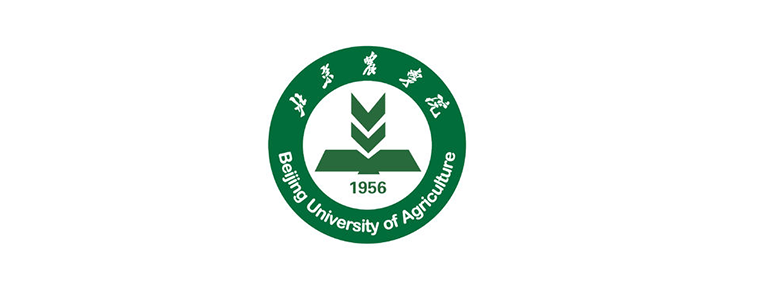
-
waterless rice noodle
Bait silk is one of the special snacks in Yunnan. It is mainly made from rice.
Views: 132 Time 2018-10-17 -
Chill chicken rice noodles
Cold chicken noodles, Yunnan snacks, cold rice noodles with ....
Views: 269 Time 2018-10-17 -
Lianzhou Underground River Scenic Spot
Lianzhou City is located in the northwest of Guangdong Province and the upper reaches of Lianjiang River. The northeast is connected with Yizhang County in Hunan Province.
Views: 87 Time 2018-12-12 -
Daweishan National Forest Park
Dawei Mountain is located in the boundary between Hunan and Jiangxi Province, the hinterland of Lianyun Mountains, the East is Tonggu County under the jurisdiction of Yichun City, Jiangxi Province.
Views: 125 Time 2019-01-07 -
Size Dongtian Scenic Spot
The Size Dongtian Scenic Area (formerly known as the Haishan Scenic Spot and Aoshan Scenic Spot) is located in the southern corner of Hainan Province, 40 kilometers west of Sanya City.
Views: 387 Time 2019-01-07 -
Wennan Ci
Wennan Ci, also known as Wenci opera and Wenci opera, is an ancient traditional opera, and is praised as the "living fossil" of Chinese opera. It is popular in Dongzhi County and Susong Coun.
Views: 85 Time 2019-06-28 -
Shougang Institute of Technology
Shougang Institute of Technology ( Shougang Institute of Technology ), located in Beijing City Shijingshan District It is an engineering college founded mainly by the Ministry of education, mainly bas.
Views: 193 Time 2019-11-27 -
Junlian karst
Junlian karst scenic area. Located in Junlian County, Yibin City. The scenic area covers 130 square kilometers. The main scenic spots include karst peak cluster, box cave, Yuanyang cave, Xianren cave, Mujing hot spring, intermittent spring, etc..
Views: 138 Time 2020-10-16 -
Chengdu Jinsha Site Museum
Chengdu Jinsha Site Museum, a national AAAA tourist attraction, is located at No.2 Jinsha Ruins Road, Qingyang District, Chengdu City, Sichuan Province. It covers an area of 456 Mu and a building area of 38000 square meters..
Views: 211 Time 2020-11-06 -
Geographical environment of Luzhou
Luzhou City, located in the southeast of Sichuan Province, borders Chongqing and Guizhou Province in the East, Guizhou Province in the south, Yunnan Province, Yibin City and Zigong City in Sichuan Province in the west, Neijiang City and Chongqing City in Sichuan Province in the north..
Views: 306 Time 2020-12-14 -
Leshan specialty food
Leshan bean curd is one of the special snacks in Leshan, Sichuan Province. The bean curd has deep red pepper and green coriander or celery..
Views: 78 Time 2020-12-17 -
Nanchong mineral resources
Nanchong mainly has rock salt, oil and natural gas, placer gold, ferrotitanium, uranium, phosphorus and other mineral resources. Nanchong is located in the core of Nanchong rock basin, the largest rock salt sedimentary basin in Sichuan Province. Underground.
Views: 336 Time 2020-12-17
